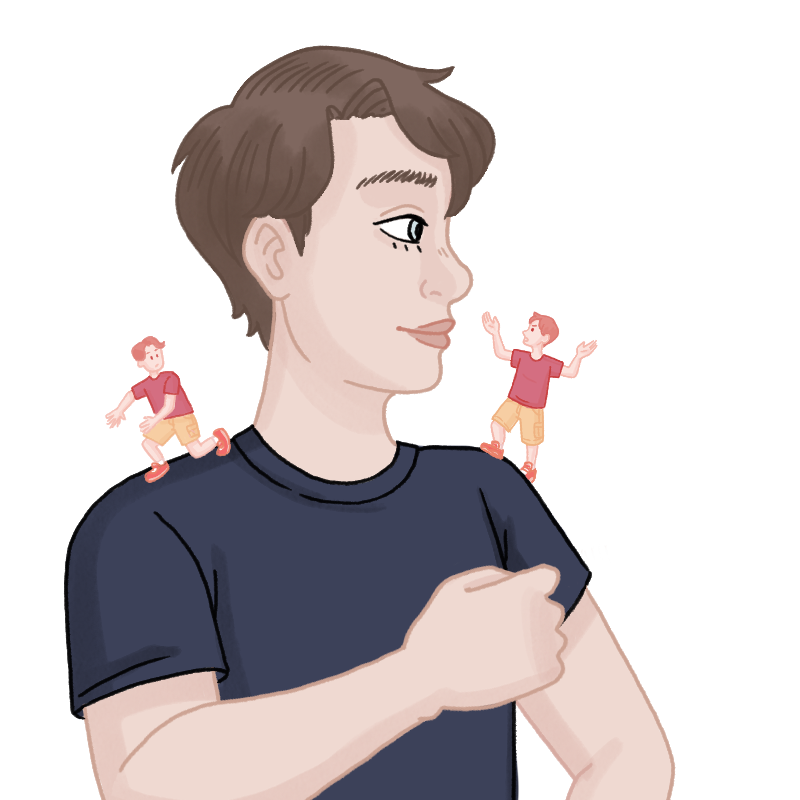





Chapter 2. Cognitive Restructuring Copy

You sit up straight and re-settle your notepad on your lap. “There are many ways to challenge unhelpful thoughts. We’ll start with your thought, ‘Only bad things happen to me’ and the first thing we’ll do is examine the evidence.”
“Alright…” Brian doesn’t sound too convinced.
You smile and begin your questions. “Was there ever a time when this thought was not true?”
Brian does a slight double take. “Ummm…I dunno.”
You continue, “In other words, has something good ever happened to you? We can look back at your life timeline if you like.”
“Oh, yeah, let’s look!”
Holding up Brian’s life timeline worksheet, you gesture down the line. “Take a look at all the events you put on here. What kind of events do we have?”
“Umm…lots of events?”
You chuckle. “Remember that you rated each event as negative, neutral, or positive. Are there only negative events on the timeline? Are there any positives?”
“Oh! Yeah, there are some positive ones. I met Kenny—that was positive—and when I visited Disneyland with my mom—that was positive, too!”
“Right. So, is it true that only bad things happen to you?”
“Oh,” he laughs, “No! You’re right! There were some good things that happened to me, too!” He can’t stop grinning.
“So you might feel that way sometimes, but in reality, even though you’ve had all these bad experiences, there have also been some good things.”
“Yeah,” he nods.
“Even among the negative things, look at the ratings.” You point casually toward the timeline. “Are they all really, really bad?”
“No. They have different ratings!”
“So, sometimes really bad things happen,” you hold out your left hand, “and sometimes minor bad things,” you lift your right hand in the same way. “Same with good things. Sometimes something slightly positive happens, and sometimes really, really good.” You fold both hands back into your lap.
“And some things are neutral, too,” Brian states matter-of-factly, folding his arms across his chest.
“Exactly! Can you remind me what neutral means to you?”
Brian nods once. “Ah huh—it is like neither bad or good.”
“Exactly! So sometimes when we’ve had bad experiences, it causes us to feel like that’s the only thing that has ever happened.”
“Yeah,” Brian agrees.
“That’s when the life timeline is really helpful because when we look at the full picture of your life, it shows us that: yes, you had some really bad things—but there were also some bad things that weren’t too bad, some things that were neither good nor bad, and there have also been some good things. So, when we look at this thought again, that only bad things happen all the time—is that 100% accurate?”
“No,” Brian shakes his head.
“No,” you smile slightly. “So, how can we change this thought, based on your evidence from your life timeline? What might be a more accurate thought?”
Brian briefly mulls over this. “Bad things happen to me—but there are some good things that happen sometimes.”
“I like that!” you beam. “Because, it acknowledges, ‘I have been through some difficult experiences, but I also remember some good stuff too!’”
The two of you work through the rest of Brian’s list of unhelpful thoughts, referencing his life timeline as needed.
